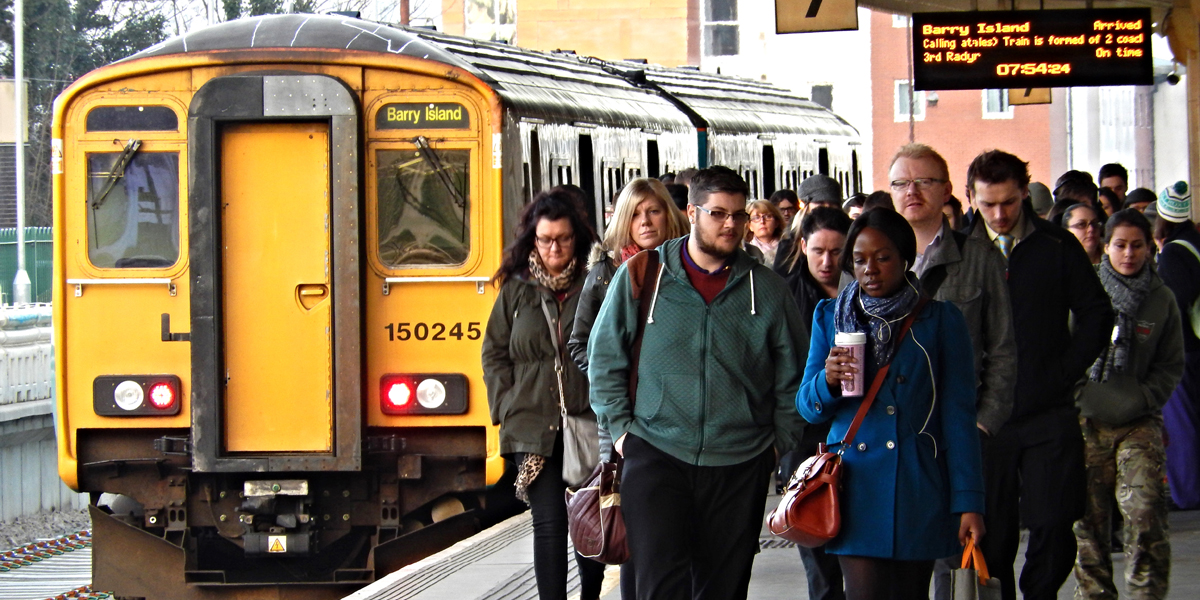Working options
In an age where work is less secure and the safety net shrinking, we need a new approach to the world of work, particularly for women, writes Jane Mansour One of the defining moments of the 2017 general election campaign came...
In an age where work is less secure and the safety net shrinking, we need a new approach to the world of work, particularly for women, writes Jane Mansour
One of the defining moments of the 2017 general election campaign came with the prime minister’s evasive response to a question on nurses having to use food banks. The assertion that there are people who work and are paid wages, and people who are unemployed and claim benefits, and that they are both different and separate, has become enshrined in the rhetoric of strivers and shirkers. But the rise in people in work accessing food banks highlights the danger of basing policy on a false distinction.
For many, work and social safety nets, of all sorts, are interdependent. Part-time work, low hourly pay, temporary or precarious employment, are simply not enough to provide financial stability and independence for an individual or a family. Women are at disproportionate risk of being in casualised, poorly-paid, insecure work. They are three times more likely to be working part-time than men, and, according to the Young Women’s Trust, almost four in five of those who have held only minimum wage jobs in the last ten years are women. They are also more likely than men to be on zero-hour or temporary contracts.
The rise of part-time self-employment is being driven by increasing numbers of low-earning women. Some are working alone to find the control and flexibility unavailable elsewhere, others are contractors, employed in all but name, rights and protections. Employers defend on-demand working models as providing flexibility. However, the imbalance in the share of (financial) risk means this claim is often a cover for insecurity, exacerbating the disadvantage that women continue to experience at all levels of employment.
Low-paid sectors that women are concentrated in – cleaning, care, catering – do not have clear progression routes. Joseph Rowntree Foundation research shows that four out of five workers on low pay are likely still to be in low pay 10 years later. In care, the quality of employment is eroded as funding drives providers to be price competitive. Earnings are further depressed when carers are only paid for contact hours. This is a direct consequence of commissioning practice: we see it in childcare with the price the government has committed for the 30 free hours, and in social care with the contracts that are awarded by local authorities.
The inequality of opportunity and reward between men and women is evident at all levels. Even within well-paid jobs there is a clear gender pay gap (exacerbated by motherhood), as the release of BBC pay data showed. In comparison with other OECD countries the UK underperforms on gender pay parity. From April next year, companies across the UK employing more than 250 people will have to publish their gender pay gap figures on their websites. However, many of the lowest paid in big organisations – cleaners, receptionists, security – will work for contractors, which may skew the data.
Even before women start working, they are being set up to achieve less. Female graduates’ expectations of earnings are lower than that of their male counterparts. They are more likely to take low-paying jobs and the pay gap follows them throughout their careers. Girls and boys experience very different conversations about work, its value and the importance of earning power. Recent research from the Learning and Work Institute has shown that women are far more likely to be apprentices in low paying sectors than men.
The gender pay gap is compounded over a working lifetime. It is entrenched by household divisions of labour (women are more likely to take time off after having children, and return to part-time work which is oftenlower paid). Indeed, while the unemployment rate for men and women is similar, there is a gap of ten percentage points in levels of economic inactivity. This is driven by higher numbers of women “looking after family or home”.
Brexit looks set to make women increasingly vulnerable to poverty in a number of ways, including the potential loss or alteration of work protections. Depressingly, although perhaps unsurprisingly, women are not mentioned specifically in the Brexit white paper. The government has said it will replace the European Social Fund. However, it is not clear that the objectives of the fund, which include supporting “vulnerable and disadvantaged women into work”, will be retained.
It is time for a better offer for workers, particularly women. This offer needs to be underpinned by rights in the workplace, a stronger voice for workers and sufficient resources to enable enforcement.
The evidence shows that one of the most effective ways to increase earnings is to move jobs and this requires confidence in the social security safety net. For all the reasons outlined above, this is particularly important for women: not only are they more likely to be in precarious, low-paid employment, they are also more likely to have caring responsibilities.
Yet, as work has become less predictable, the safety net has been weakened. Programmes that support people into work were given relatively short shrift in manifestos, and funding (including adult skills) has been cut. This includes programmes for single parents, who are predominantly women. The weakening safety net can also be seen in cuts to social security, in the changes and increasing conditionality that universal credit brings, and in the way jobs are measured but the quality of those jobs and their impact on poverty is not. It is seen in the cuts to adult learning and the introduction of adult learner loans. It is also seen in a childcare sector that does not have the capacity to offer affordable and quality care to those with unpredictable or non-standard hours, even though those are the jobs increasingly likely to be available for those on low pay.
These areas are not just ‘nice to haves’. Improving the experience of work for people requires tackling a number of issues that make work difficult to find or keep. For many people in low-paid work, changes to social security have more impact on income than changes to wages. Moving for work is made more difficult by school admission processes. Access to skills is often dictated by entry criteria including age, geography or previous qualifications rather than potential to boost earnings. Disabled women not only earn less than non-disabled counterparts, but women’s living standards are also more likely to be affected by disability as they disproportionately take on the role of carer.
There is also the issue of people’s control over the work they do and its place in their lives. This is an ideal time for more radical thinking about job design. Organisations such as Diverse City which use task-based contracting to free people from office and time restrictions, are showing that giving staff control over how and when they work makes jobs in the arts accessible to people with disabilities, fluctuating health conditions and/or caring responsibilities.
We should seize the opportunity to develop a new kind of holistic, work-focused support that uses networks and returns power and control to the individual and community. Sadly, conversations about changes to working structures are too often shut down by those with power on the basis they cannot imagine how an alternative could work. They do not need to imagine – they need to be open to allowing others space to demonstrate how they work best.
Much employment support tends to focus on ‘now’ jobs, so few workers benefit from advice or calculations that look at the potential future financial benefits of the next job they might take. The pressure on the individual, and on any services directed at them, is on a quick fix, a job entry in the shortest possible time. The ‘now’ job that is achieved regardless of context is very likely to be precarious, insecure and with low prospects, particularly for women. A new kind of support that recognises the future return for individual and society of stable, progressing employment will look very different. It will talk about career (and life) paths. It will integrate skills and employment. It will measure and report on (and possibly pay service providers for) impacts, such as long-term independent livelihoods.
Interventions currently see beneficiaries as individuals, but networks are central to sustainable success, and job mobility. The Fabian Women’s Network mentoring scheme is an excellent example of a programme set up to support women, at every age and career stage, in this case to progress in politics or public life. We should consider how a similar approach could be used in sectors in which low pay is endemic, or indeed look at a broader redesign of employment-related support services. Effective partnerships are key to sustainable outcomes and their absence places a huge constraint on public services. In practice this means improving integration between health services, employment services and labour markets at a local level. We should be thinking about, and redesigning, services from a user perspective, and ensuring that expertise is available to navigate often complex delivery structures.
Historically, trade unions have been the main mechanism driving worker/employer engagement, and there are, of course, examples of where this still happens effectively. However, membership of unions is disproportionately among public sector, older, and middle to high earners. Some unions are working to grow their membership among vulnerable workers, but there is a clear need for different approaches to frontline worker support, and shared spaces, with a particular focus on women. Here the creation of unions such as IWGB or partnerships such as IndyCube Community is instructive.
If we are to realise the political rhetoric that work is the best route out of poverty, we need a new approach. One underpinned by a safety net that enables people to take on the risks of work, learning, caring and parenthood. We need, too, a radical change to the way we assess the effectiveness of interventions, prioritising sustainable economic outcomes over short-term job outcomes and a place at the (policy and delivery) tables for those whose lives are impacted by such interventions. We have to challenge the structure of work, as well as the support services available and the way we evaluate them.

